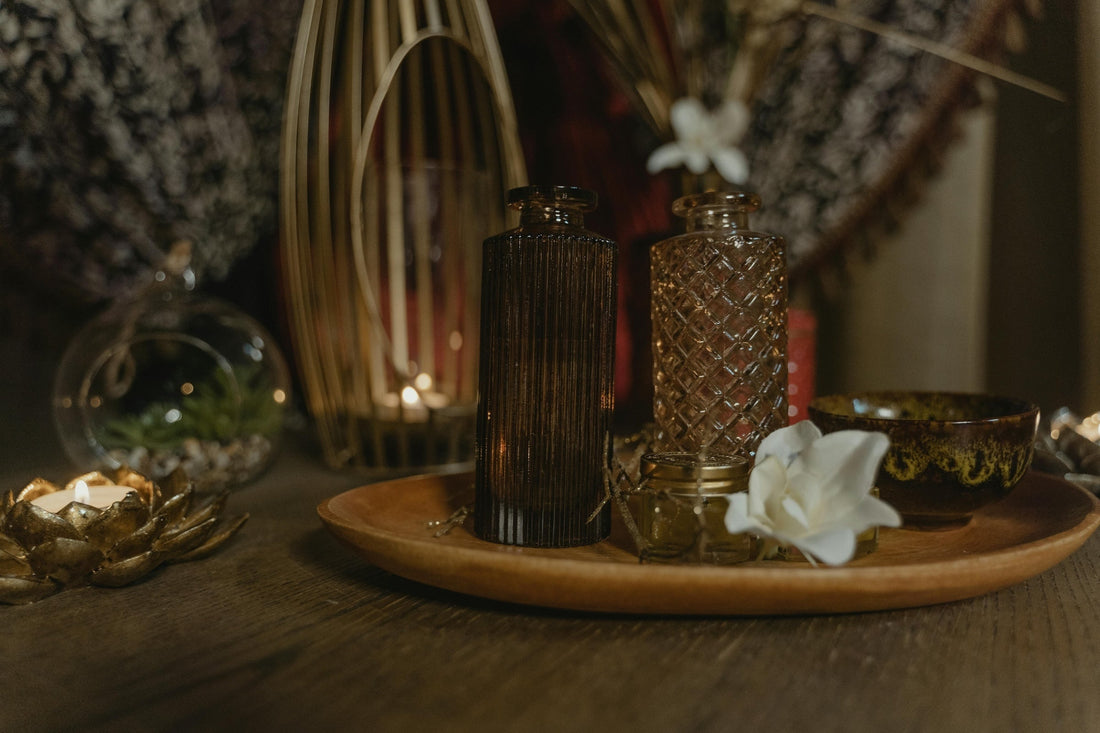
Holistic Sleep Rituals: Nurturing Mind and Body Sustainably
Share
In today's fast-paced world, where distractions are abundant and stress levels are often high, quality sleep can seem elusive. However, more than just a nightly necessity, sleep is a cornerstone of physical and mental well-being. While many resort to quick fixes like sleeping pills or trendy gadgets, a holistic approach to sleep can provide long-lasting benefits by nurturing both the mind and body. Holistic sleep rituals not only help improve sleep quality but also emphasize sustainability, mindfulness, and a deep connection to our natural rhythms. Here, we'll explore how you can integrate holistic practices into your nightly routine and achieve restful sleep while being mindful of your overall well-being and the planet.
Understanding Holistic Sleep
Holistic sleep takes into account the entire individual—mind, body, and environment. Rather than focusing solely on external aids like sleeping pills, it incorporates lifestyle changes, mindfulness, natural remedies, and sustainable practices. The goal is to create an environment and a state of mind that naturally promote better sleep, rather than relying on temporary fixes.
When we approach sleep holistically, we recognize that it’s influenced by many factors: our physical health, mental state, daily routines, diet, and even the spaces we sleep in. The following practices will help you build a sustainable and holistic sleep ritual that not only nurtures your sleep but your overall well-being.
1. Create a Restful Sleep Environment
Your environment plays a crucial role in sleep quality. Holistic sleep emphasizes creating a sustainable, serene space that encourages rest.
Choose Sustainable Bedding
Investing in eco-friendly and sustainable bedding materials like bamboo lyocell or organic cotton sheets helps not only the environment but also your sleep. Natural, breathable fabrics can regulate body temperature, keeping you comfortable throughout the night. Avoid synthetic materials that trap heat and can disrupt your sleep cycles.
Look for bedding that is Oeko-Tex certified or made from sustainable sources to ensure your sheets are free of harmful chemicals. Not only will this improve your sleep, but it also supports a healthier planet.
Declutter and Simplify
A cluttered bedroom can overstimulate the brain, making it harder to relax. Keep your sleep space minimal, clean, and free of distractions. Removing excess items fosters calmness and helps your brain associate the space with rest and relaxation. This also aligns with sustainable living by promoting minimalism and reducing waste.
Incorporate Natural Elements
Incorporating elements from nature can help create a calming atmosphere. Plants like lavender or jasmine not only add a touch of greenery but also purify the air and provide a soothing fragrance that can promote relaxation. Wooden furniture or natural textures like linen, hemp, or bamboo can add to the serene vibe of your bedroom.
Lighting Matters
Avoid bright, artificial lights in the hours leading up to bedtime. Blue light emitted by phones, laptops, and even some LED lights can interfere with your body's natural production of melatonin, the sleep hormone. Switch to soft, warm lighting in the evening or use candles for a more natural ambiance. Opt for energy-efficient bulbs and be mindful of energy consumption in your space.
2. Mindful Pre-Sleep Rituals
What you do before bed can significantly impact the quality of your sleep. A holistic approach emphasizes mindfulness, relaxation, and connecting with your body’s natural rhythms.
Practice Mindful Breathing or Meditation
Before bed, take time to center your thoughts and calm your mind. Practicing deep breathing exercises or guided meditation can help reduce stress, lower your heart rate, and prepare your body for sleep. Apps like Calm or Headspace offer sleep meditations specifically designed to promote relaxation.
Mindful breathing not only reduces anxiety but also encourages you to be present, letting go of the day’s worries. This mindful approach to relaxation is a sustainable way to reduce your reliance on sleep aids and cultivate a more profound sense of rest.
Journaling
Many find that writing down their thoughts or worries before bed can help clear their minds. By putting pen to paper, you can release the day's stressors, making it easier to fall asleep without racing thoughts. In your journal, try focusing on gratitude or reflecting on positive moments from the day. This helps shift your mindset from one of anxiety to relaxation.
Gentle Stretching or Yoga
Engaging in gentle yoga or stretching can help release built-up tension in the body. Certain yoga poses, like the child’s pose or legs-up-the-wall, are particularly effective for relaxing the muscles and calming the nervous system. A short, mindful stretching routine not only prepares your body for sleep but also helps in keeping your muscles flexible and strong.
Limit Technology
Disconnecting from technology at least 30 minutes before bed is a crucial part of a holistic sleep routine. The stimulation from screens can trick your brain into staying alert when it should be winding down. Instead, turn to calming activities like reading a book (preferably not on a screen), journaling, or listening to soft music. Creating this boundary between your day and your sleep routine helps signal to your brain that it's time to rest.
3. Herbal Sleep Aids and Natural Remedies
Nature offers a wide range of gentle sleep aids that can help calm your mind and body without the negative side effects associated with synthetic medications.
Chamomile Tea
Chamomile has long been celebrated for its calming properties. A warm cup of chamomile tea before bed can help relax your nervous system, reduce stress, and promote sleep. As a sustainable and natural remedy, chamomile can easily be incorporated into your nightly routine.
Lavender Oil
Lavender oil is another popular natural sleep aid. Studies show that lavender can reduce anxiety and improve sleep quality when used as aromatherapy. Add a few drops of lavender essential oil to a diffuser, or sprinkle it on your pillow for a soothing scent that helps you drift off into a restful slumber.
Valerian Root
Valerian root is an herbal supplement commonly used for its sedative effects. Taken as a tea or capsule, valerian can promote relaxation and improve sleep quality over time. As with all herbal remedies, consult with a healthcare professional before adding new supplements to your routine.
Magnesium
Magnesium is a mineral that supports muscle relaxation and overall nervous system health. If you find yourself tossing and turning due to muscle tension or cramps, consider taking a magnesium supplement or incorporating magnesium-rich foods like spinach, almonds, and avocado into your diet.
4. Aligning with Natural Rhythms
One of the most effective ways to improve sleep is by syncing your body with its natural circadian rhythms. The circadian rhythm is your internal clock, which regulates your sleep-wake cycle. By aligning your routine with natural light patterns, you’ll find it easier to fall asleep and wake up feeling refreshed.
Stick to a Consistent Sleep Schedule
Try to go to bed and wake up at the same time every day, even on weekends. This consistency helps regulate your internal clock and improves the quality of your sleep over time.
Get Sunlight Exposure
Exposure to natural light during the day helps regulate your body’s production of melatonin. If you can, spend time outside in the morning or early afternoon to support your circadian rhythm. This natural boost of daylight encourages alertness during the day and signals your body when it's time to wind down in the evening.
Wind Down with the Sun
As the day comes to a close, begin winding down with relaxing activities. Reduce your exposure to artificial lights and opt for more calming rituals like reading, gentle stretching, or enjoying a warm bath. The goal is to mimic the natural transition from day to night, helping your body recognize when it's time to sleep.
5. Sustainable Sleep Habits
Incorporating sustainable habits into your sleep routine benefits not only your well-being but also the environment.
Choose Eco-Friendly Sleep Products
From your mattress to your pillows, opt for products made from natural, renewable materials. Eco-friendly mattresses, for example, use organic cotton, natural latex, and sustainable wood. Choosing sustainable sleep products ensures a healthier environment and reduces your exposure to synthetic chemicals and materials.
Be Mindful of Your Energy Use
As part of your nightly routine, consider ways to reduce your energy consumption. Turn off unnecessary electronics, switch to energy-efficient lighting, and unplug devices before bed. Even small changes in energy usage contribute to a more sustainable lifestyle, and they can help create a calmer, quieter environment conducive to sleep.
To Sum It Up
Achieving deep, restful sleep doesn’t have to involve synthetic solutions or high-tech gadgets. A holistic approach that nurtures both the mind and body can improve sleep quality while promoting overall health and sustainability. By incorporating mindful practices, natural remedies, and eco-friendly choices into your sleep routine, you’ll create a space where your body and mind can truly rest.
As you explore these holistic sleep rituals, remember that sleep is deeply personal, and it may take time to find what works best for you. The key is to create habits and spaces that are in harmony with your natural rhythms, all while being mindful of the impact on the planet.
With a sustainable, holistic approach, you’ll wake up feeling not only refreshed but also empowered, knowing that your sleep rituals are nurturing both your well-being and the earth.
Be sure to check out our ultra cozy bedding, guaranteed to be your new favourite (Or your money back 🤯)
Vearthy | 100% Bamboo Lyocell Bedding
👉 Temperature Regulating
👉 Moisture Wicking
👉 Ultra Soft
👉 5 Star Rated
👉 365 Love It Or Return It Guarantee
